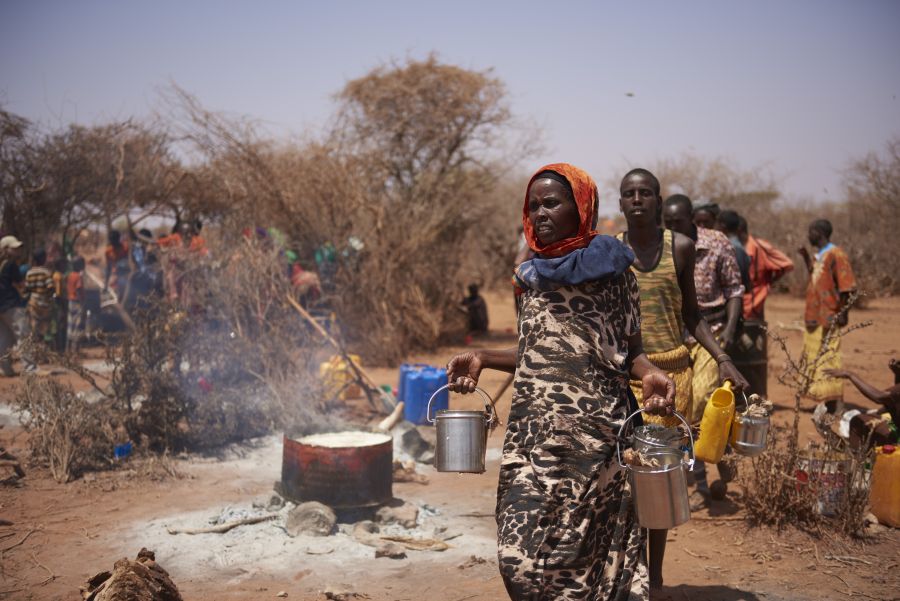Additional EU assistance of €15 million will help scale up the response to surging humanitarian needs in the drought-stricken country.
The European Commission has announced new emergency assistance of €15 million to help people in Ethiopia who are facing increasingly dangerous levels of food insecurity due to severe drought, bringing total EU humanitarian funding in 2017 to over €91 million.
The support comes as the number of refugees arriving from neighbouring countries such as Eritrea, Somalia, and especially South Sudan is constantly increasing, as is the number of internally displaced people.
“Ethiopia is facing humanitarian crises on many sides – from those devastated by drought to the challenges brought by an upsurge in refugees from neighbouring countries. The EU is committed to support those in need in Ethiopia. Our new aid will enable humanitarian organisations to step up emergency food assistance and the treatment of malnutrition,” said Commissioner for Humanitarian Aid and Crisis Management Christos Stylianides.

The funding will also help address water supply, livestock protection, shelter and protection, notably for the increasing numbers of internally displaced people.
The EU also provides development aid for Ethiopia worth €745 million over 2014-2020 through the European Development Fund.
Background
The number of people needing emergency food assistance has now reached 8.5 million. An estimated 3.6 million children and pregnant and lactating mothers are suffering from acute malnutrition. The prolonged drought has also caused massive livestock losses and has forced over 360 000 people out of their homes.
Ethiopia also hosts refugees in 25 camps located in Tigray, Afar, Somali, Gambella, and Benishangul Gumuz regions. It has been facing an increasingly growing influx of refugees mainly from South Sudan and Somalia, but also from Sudan and Eritrea. Meanwhile, escalating tensions and violent incidents along the Oromia – Somali regional border since September have resulted in a surge of displaced people across the two regions, leaving thousands in a highly precarious and vulnerable position.
At the same time, the number of internally displaced people now stands at over 1.3 million, following an escalation of internal conflicts since September.

